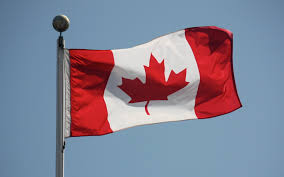Many voters were in “Anyone but Harper” mode, but an NDP victory would have restructured Canadian politics for a generation, and very likely more. The NDP collapse to third place was a disaster for the majority of Canadians.
Canada has been ruled by either the Conservatives (in different incarnations) or the Liberals, since Confederation. The Liberals ran the lion’s share of that, but the Conservatives had their runs, as well.
The Liberal party would campaign left and “govern center,” which, since the 90s, meant embracing the neoliberal consensus.
In every election, the NDP would show worse numbers than those of its natural support base because of strategic voting; left-wingers would run to the Liberal Party to “Stop the Conservatives.” Often, this wasn’t even necessary. In many ridings, the competition was between a Liberal and a NDPer.
As a result of this dynamic, Canada has been run as a much more conservative-centrist country than is justified by the beliefs of the population.
Additionally, the First Past the Post electoral systems reward a geographic clustering of the vote, leading to parties being rewarded for serving regional interests and inflaming regional prejudices. A clustered body of support (as with the Conservatives in Alberta and the West in general, or the Bloc Quebecois) would reap a disproportionate number of MPs.
In this election, what was at stake was a chance to change this dynamic.
The “run to the party which can beat the Conservatives” dynamic could have been transferred to the NDP–and almost was (remember, they had the lead going in to the campaign). Once that had been the case for a few elections, it would be as natural to people as the old “run to the Liberals” dynamic.
But transferring that dynamic is not what the NDP wanted. What they wanted was electoral reform so that people didn’t need to vote strategically to stop the Conservatives.
Just one elected NDP government managing to implement electoral reform would change the entire nature of Canadian politics. These would make another Harper impossible for a generation or two. They would mean that most governments would be coalition governments, with the natural coalition being Liberal-NDP, and with Conservative coalitions being much milder because they must rule with a more left-wing party on their flank.
Canada’s population is center-left. Sixty percent of the voting population would never vote Conservative. Electoral change would help Canada’s governments to reflect that, rather than being about the committed plurality, leaving us with eight to ten years of Conservative rule every 25 years or so.
This is what was at stake in the last election. It was a Big Deal.
The worry now is that we’re back to status quo. The Liberals and Conservatives swap being in government, the Liberals run to the left and govern to the center and Canada continues its nasty rightward trend (of which the Liberal governments of the 90s and 00s were a part) with some jogs leftward, primarily on social issues (which are important, but don’t trump the damage of neoliberal economics).
This election mattered, and it should have been about much more than “Get Harper Out.” Conservatives were not destroyed by this election. They did fine, they just took a normal loss. The party that was devastated was the NDP.
The price of that is likely to be severe, and this is true even if Justin Trudeau keeps the majority of his promises.
If you enjoyed this article, and want me to write more, please DONATE or SUBSCRIBE.

